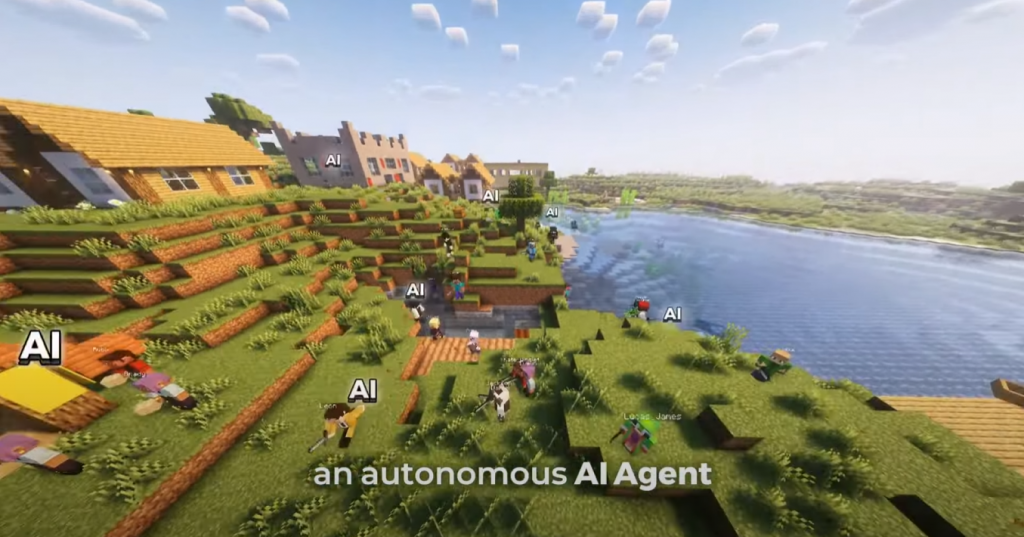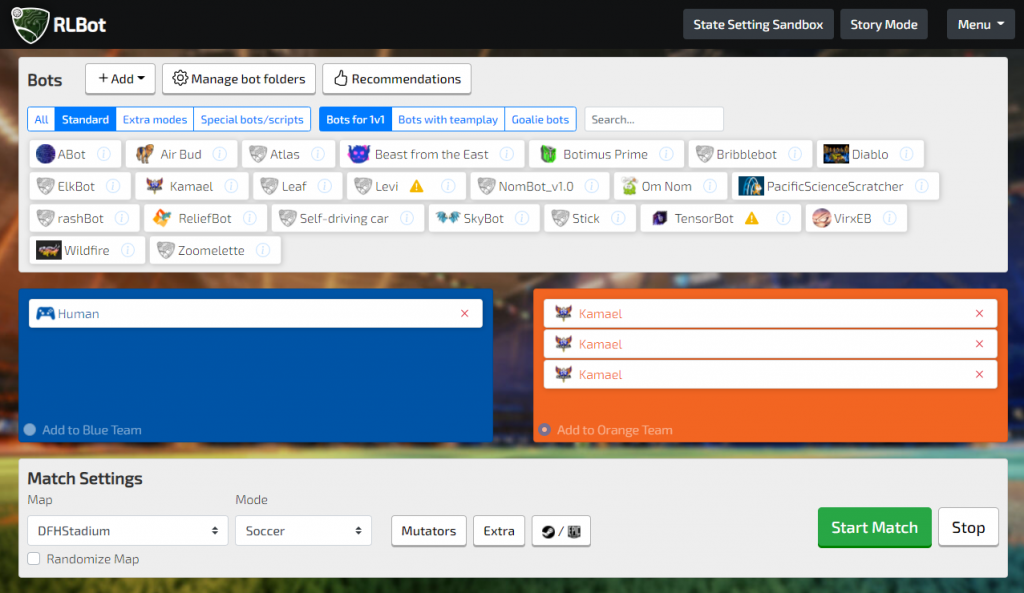As a lifelong gamer, I’ve seen the evolution of gaming firsthand. From those early days playing Counter-Strike 1.6, back when LAN parties and dial-up internet were the norm, to now, where most of my gaming hours are spent in Rocket League and Call of Duty: Warzone. While my heart lies with competitive gaming, I also like to dive into immersive titles like Minecraft, Valheim, DayZ and Cities Skylines when I need to relax and unwind. Each game scratches a different itch, whether it’s mastering a mechanic or building a sprawling city from scratch.
The game I take the most seriously these days is Rocket League. Over the years, I’ve slowly worked my way up to Champ 2 in duos with a friend. The beauty of the game lies in its simplicity on the surface, hitting a ball into a goal. But the deeper you dive, the more you realize there’s seemingly no ceiling to what you can learn. New mechanics are constantly emerging, changing the way we play and I’ve even started tracking my own progress by posting amateur montages on my YouTube channel. It’s mostly for my own viewing pleasure, but it keeps me motivated.
AI’s Growing Role in Competitive and Casual Gaming
While much of the focus has been on how AI can speed up game development, what excites me most is how AI will enhance gameplay and interactivity itself.
For example, recently there was an experiment where researchers programmed 1,000 autonomous AI agents to form their own civilization within Minecraft. These AI agents were designed to perform various tasks, from gathering resources to building structures, all while interacting with one another in real-time. What made this particularly impressive was the complexity of their behavior. They weren’t just following simple scripts; they learned from their environment and adapted based on their interactions, creating a dynamic, evolving world that mirrored human-like society in certain ways. This project hints at the incredible potential of AI to generate self-sustaining virtual environments, where NPCs could become indistinguishable from real players.
Helpful Tip
Join the waitlist here for their first AI buddy designed to play Minecraft alongside you
Altera, the company behind the Minecraft AI experiment, is building digital human beings for gaming.

The implications of this go far beyond Minecraft. Imagine a future where games could feature AI-driven populations that evolve and react to player decisions, creating entirely unique worlds for each player. These AI agents could generate stories, build cities and even develop their own cultures, making every playthrough different. This kind of generative AI could pave the way for deeper immersion, where the game world truly feels alive and responsive.
While experiments like these push the boundaries of immersive, AI-driven worlds, competitive gaming is also feeling the impact of AI advancements in real-time skill-based environments like Rocket League. RLBot is a community-driven platform that allows players to create, share and compete with custom AI bots in Rocket League. Seeing bots that can compete at pro levels in such a technical, mechanical game is mind-blowing. Some bots, like Seer, have even beaten top players and the community is starting to study these bots to pick up new strategies and mechanics. Bots like Seer, Nexto and Necto have mastered intricate mechanics like aerials and wave dashing through reinforcement learning, offering a glimpse into how AI could one day help us learn new gameplay techniques.
Helpful Tip
If you’re curious about playing against these AI bots in Rocket League, check out the RLBot website.You can download them and see how they stack up against your skills!

The implications of AI in competitive gaming go beyond just bots becoming better players. AI has the potential to fundamentally reshape the learning curve in highly technical games, where mastering mechanics can take years. AI-driven bots could serve as advanced training tools, helping players refine specific skills and strategies by analyzing their weaknesses and offering personalized challenges. In the future, AI might not just help us compete, it could be the key to unlocking new ways to improve as players.
The Positive and Negative Impacts of AI in Gaming
With all the excitement around AI, it’s important to take a step back and consider the potential downsides. There’s no denying that AI could help game developers bring content to market faster, but it’s crucial that we find a balance between leveraging AI and supporting the human creativity that makes games great.
On the positive side, AI can create more immersive, dynamic experiences. NPCs that remember past interactions, environments that adapt to player behavior in real-time, these are all possibilities AI opens up. Games like Diablo or Destiny could become even more engaging by generating storylines that evolve with player choices, creating truly unique experiences.
However, AI’s rise in game development has already led to concerns about job security for artists, designers and writers. Companies could be tempted to rely too heavily on AI to cut costs, replacing the creative minds that make gaming such a vibrant industry. The challenge will be finding a way to integrate AI as a tool for developers and creatives, not a replacement.
How AI Will Revolutionize Gameplay
Let’s focus on the optimistic side for a moment and imagine a world where gaming companies use AI primarily to enhance immersion and gameplay. There’s incredible potential here. AI could revolutionize how we interact with game worlds, from NPCs that react to your decisions in real-time, to endless content generation that keeps each playthrough fresh. This isn’t just about making development faster, it’s about creating experiences that feel more alive and personalized than ever before.
1. More Realistic NPC Interactions
Generative AI has the potential to create NPCs that behave like real people. Games like Skyrim or Cyberpunk 2077 could feature NPCs that remember your past interactions and respond differently based on your previous choices. Ubisoft is already experimenting with AI to create dynamic, emotionally responsive NPCs that can engage players in meaningful ways, changing the narrative based on your actions.
Helpful Tip
Check out some of the user created integrations with moddable games that already exist today.An early example of this was this video that integrates ChatGPT with Skyrim VR.
2. Adaptive Game Difficulty
Imagine a games like Rocket League and Call of Duty where the AI opponents don’t just follow pre-set behaviors but adapt to your playstyle in real-time. AI could tailor the difficulty level to match your skill, adjusting enemy tactics based on how you approach each mission. This could create a more immersive experience where you’re constantly challenged, but not overwhelmed.
3. Endless Content Creation
AI could make procedural generation even more powerful, allowing for games that offer endless replayability. In Cities Skylines or Factorio, AI could dynamically generate new maps, challenges or scenarios based on how you’ve played previous levels, ensuring that no two playthroughs are the same. In Cities Skylines specifically, it wouldn’t be too hard to use generative AI to give citizens backstories and use it to inform their base AI.
4. User-Generated Content
Games like Minecraft and Fortnite have already shown the power of user-generated content (UGC), but AI could take this to the next level. Players could use AI tools to create their own characters, levels or even entire games with minimal effort, democratizing game design and allowing for even more creativity from the community.
Helpful Tip
Keep an eye on upcoming AI tools for Minecraft and Fortnite that could allow players to create their own worlds and characters with just a few prompts.User-generated content meets AI-driven creativity.
The Future of AI and Gaming
Generative AI is already making waves in most industries, but in the gaming world it’s clear that its influence will only grow in the coming years. From more immersive NPCs to adaptive gameplay and endless content generation, AI has the potential to revolutionize how we play games.
It’s crucial that game companies strike the right balance, using AI to enhance gameplay and support creatives and developers rather than simply cutting costs. If we can get this right, the future of gaming looks incredibly exciting.
For now, I’ll keep grinding in Rocket League, watching how AI evolves both within the game and the industry at large.


One reply on “How AI is Changing the Way We Play”
Great post – I am looking forward to the progress of AI in gaming. The evolving NPC should be fun to experience.